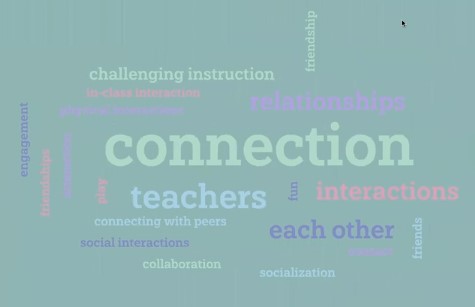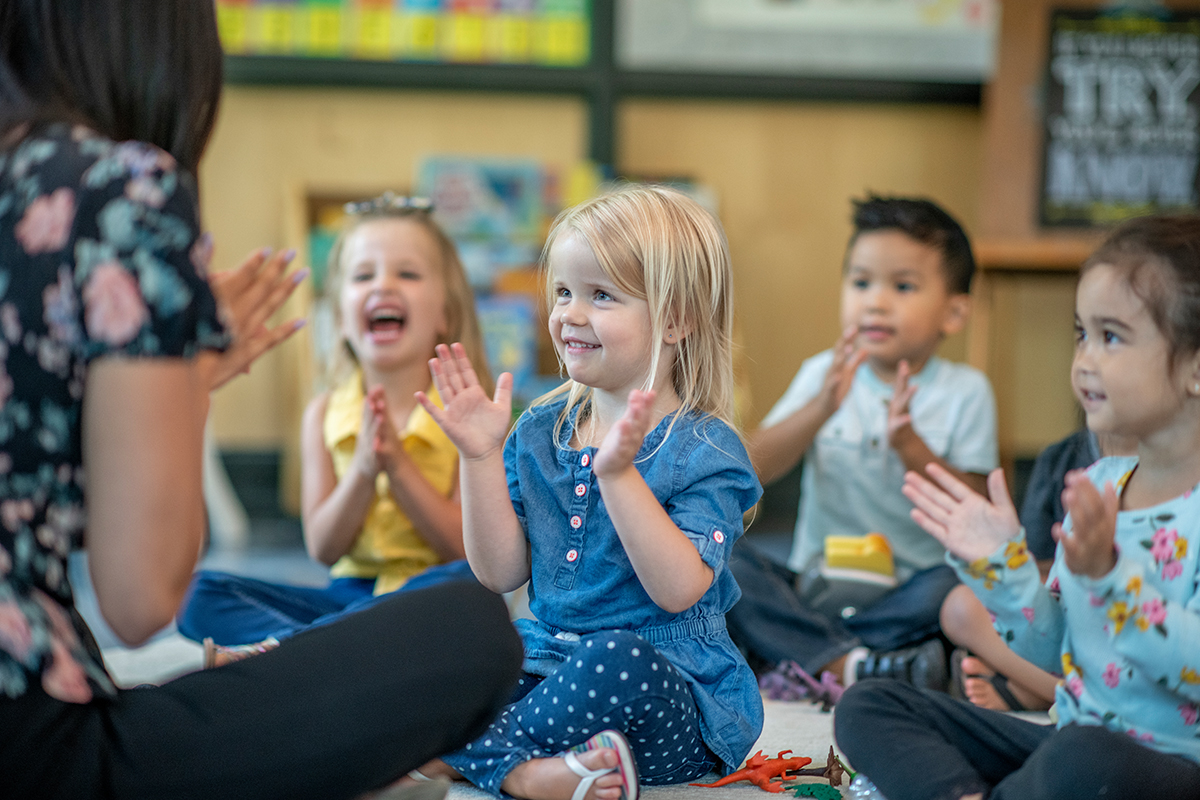“I don’t think we need to be doing more emergency-mode teaching over the summer,” said Pam Gildersleeve-Hernandez, executive director of the nonprofit CUE.org and a former principal and superintendent. She later said that “once we meet these social-emotional needs, the mitigating of the learning loss is going to happen.”
Gildersleeve-Hernandez — former superintendent and principal of the one-school San Antonio Union Elementary School District in south Monterey County — led the interactive webinar with attendees from parts of the state including the Central Valley, Lake Tahoe and Imperial County.
Educators and school leaders used a virtual platform to provide feedback to questions such as “how do you feel about distance learning” and “what are students really missing right now?” Responses to the latter included words such as relationships, interaction, collaboration, engagement, play and friends. “One thing I noticed is that learning loss is one of the items that we did not come up with. It’s truly the interaction, the connection,” Gildersleeve-Hernandez said.
To incorporate a focus on social and emotional well-being with ideas for distance learning that are more feasible for small and rural districts, Gildersleeve-Hernandez encouraged the use of books, science lessons, games and other interactive activities. These lessons and activities can be done offline at home, or “analog,” while the sharing out and conversations can follow digitally, to the extent possible.
The balance of online and offline learning can be especially attractive for districts and schools in smaller communities struggling with the “new normal” of learning that will likely continue to some degree in academic year 2020–21. “We have the ability to really be agile, but we also have communities that don’t necessarily seek out a lot of change and may be resistant to some of what’s happening in their communities with increased broadband and the increased use of devices,” Gildersleeve-Hernandez said.
For students and teachers with greater technology access, Gildersleeve-Hernandez offered suggestions to stir creativity and restore the personality of students that can go missing with distance learning. “The sit and get can get old and tiresome. And we’re all talking about being ‘Zoomed’ out,” she said. Examples for making digital experiences interactive and memorable include using interactive journals, podcasting and digital storytelling platforms.
“My husband used Flipgrid for a digital field day at his elementary school” shared Kelly Martin, elementary curriculum and educational tech coordinator for Lake Tahoe Unified School District.
The roughly 50 attendees also provided feedback on what they feel would best help administrators and teachers in the switch to distance or blended learning. The most common responses were words like grace, guidance, support, understanding and compassion — which Gildersleeve-Hernandez said are universally needed during and after this crisis.
“As we make this transition to distance learning, understanding that it’s the same for the students that we teach, it’s the same for the parents and the community members who have experienced a very traditional classroom setting, particularly in our rural school districts,” she said.
The webinar aimed at rural and small district was the latest entry in the CCEE’s series in which the agency is partnering with technical assistance providers and experts to provide distance learning resources, guidance, training and ongoing professional learning. Registration for upcoming webinars and resources from past modules are posted on the CCEE’s COVID-19 webpage. Topic categories include equity considerations, special education and community engagement.
Additionally, details on how the State System of Support has shifted to aid local educational agencies in this time of rapid change will be discussed at the CCEE’s Thursday, June 4 virtual board meeting. “We have received many questions around how can we support small, rural districts with distance learning, with blended learning and the transition back to reopening,” said Michelle Magyar, CCEE assistant director of Research and Strategic Development.





